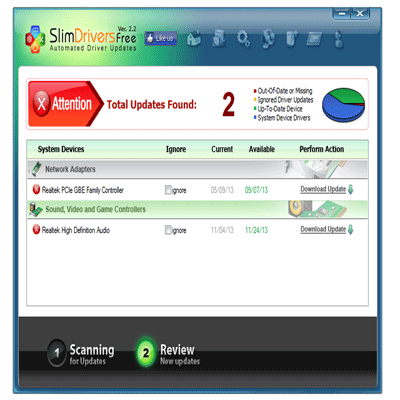If you are an avid Twitter user, you may have heard of the term “Twitter files.” But what exactly are these files, and how do they work? In this article, we’ll dive into the details of Twitter files and shed some light on what they are, how they function, and why they matter.
What are Twitter Files?
Twitter files are digital files that contain information related to Twitter. They are created by Twitter’s servers and are used to store and retrieve data related to a user’s Twitter account, tweets, followers, and more.
Types of Twitter Files
There are three main types of Twitter files: tweet files, profile files, and media files.
1. Tweet Files
Tweet files contain data related to a specific tweet, including the content of the tweet. The time and date it was posted, the user who posted it, and any associated hashtags or links. They also contain metadata about the tweet, such as the number of retweets, likes, and replies.
2. Profile Files
Profile files contain data related to a specific Twitter user, including their username, bio, profile picture, and location. They also contain metadata about the user, such as the number of followers and tweets.
3. Media Files
Media files contain data related to any images, videos, or other media that are posted on Twitter. They include the media file itself, as well as metadata about the file. Such as the date it was posted and any associated captions or descriptions.
How to do Twitter Files Work?
Twitter files are created and stored on Twitter’s servers. When a user interacts with Twitter, such as by posting a tweet or following a new user. Twitter’s servers create new files or update existing ones.
These files are then used to power various features of Twitter. Such as the user’s timeline, search results, and trending topics. They are also used by third-party developers and researchers to analyze Twitter data and gain insights into user behavior and trends.
Why are Twitter Files Important?
Twitter files are important because they enable users and researchers to access and analyze large amounts of Twitter data. By studying Twitter files, researchers can gain insights into user behavior, trends, and preferences. Which can be useful for a variety of purposes, from marketing to social science research.
Twitter files are also important for Twitter itself, as they enable the platform to provide personalized content and recommendations to users. By analyzing a user’s tweet and profile files, Twitter can suggest new accounts to follow, highlight relevant tweets and hashtags, and deliver targeted advertising.
How to Access Twitter Files
To access your own Twitter files, you can request a copy of your Twitter data by going to your Twitter settings and clicking on “Your Twitter data.” From there, you can download a file that contains all of your tweets, profile information, and other data.
To access Twitter files for research or analysis purposes. You can use various third-party tools and APIs that allow you to extract and analyze Twitter data. Some popular tools include Twint, Tweepy, and the Twitter API.
How to use Twitter Files for Analysis
Twitter files can be used for a variety of analysis purposes, from social science research to marketing analysis.
Some common ways to use Twitter files for analysis include:
- Sentiment Analysis: By analyzing tweet files, researchers can gain insights into the sentiment of Twitter users towards a particular topic or brand.
- Network Analysis: By analyzing followers and following information in profile files. Researchers can gain insights into the structure of Twitter networks and how information flows through them.
- Hashtag Analysis: By analyzing hashtag data in tweet files, researchers can gain insights into which topics are popular on Twitter and how they are being discussed.
- Content Analysis: By analyzing the content of tweet files, researchers can gain insights into what types of content are being shared on Twitter and how users are engaging with it.
Twitter Files and Privacy Concerns
While Twitter files can be a valuable source of data for researchers and analysts, they also raise important privacy concerns. Twitter users may not be aware that their data is being stored and analyzed, and may not have given explicit consent for this to happen.
To address these concerns, Twitter has implemented various privacy controls and policies that give users more control over their data. For example, users can choose to make their tweets private, which means they can only be seen by approved followers, Twitter also allows users to opt out of targeted advertising based on their data.
Twitter Files and Advertising
Twitter files are a valuable tool for advertisers, as they allow them to deliver targeted ads to users based on their interests and behaviors. By analyzing tweets and profile files, advertisers can gain insights into a user’s preferences and create targeted ads that are more likely to be effective.
However, this use of Twitter files has also raised concerns about privacy and data protection. Some users may not be comfortable with their data being used for advertising purposes, and may not have given explicit consent for this to happen.
Twitter Files and Data Storage
Twitter files are stored on Twitter’s servers, which use a combination of cloud storage and on-premises infrastructure to store and manage the data, Twitter uses various data security measures. Such as encryption and access controls, to protect user data from unauthorized access or breaches.
Future of Twitter Files
As Twitter continues to grow and evolve, it is likely that the use of Twitter files will become even more important. With the rise of artificial intelligence and machine learning. Researchers and analysts may be able to extract even more insights from Twitter data, leading to new discoveries and innovations.
Advantages and Disadvantages of Twitter Files
Some advantages of Twitter files include:
- Large Amounts of Data: Twitter files contain vast amounts of data that can be used for research and analysis purposes.
- Real-time Data: Twitter files are updated in real-time, which means researchers can gain insights into current events and trends as they happen.
- Personalization: Twitter files enable Twitter to provide personalized content and recommendations to users.
Some disadvantages of Twitter files include:
- Privacy Concerns: Twitter files raise important privacy concerns, as users may not be aware that their data is being stored and analyzed.
- Bias: Twitter files may be biased towards certain types of users or content, which can skew analysis results.
- Complexity: Twitter files can be complex and difficult to analyze, requiring specialized knowledge and tools.
Best Practices for Working with Twitter Files
If you are planning to work with Twitter files, there are some best practices you should follow to ensure that your analysis is accurate and ethical. These include:
- Use Ethical Data Collection Practices: When collecting Twitter data, make sure you are doing so in an ethical and legal manner. Follow all applicable laws and regulations, and obtain any necessary permissions or consents.
- Be Transparent: If you are using Twitter data for research or analysis purposes, be transparent about your methods and intentions. Clearly explain how you will be using the data, and give users the option to opt out if they do not want their data to be included.
- Use Appropriate Tools: When working with Twitter files, it is important to use the right tools and software to ensure accurate analysis and interpretation of the data. There are many specialized tools available for working with Twitter data. Such as social media monitoring platforms and text analysis software.
- Consider Bias and Context: When analyzing Twitter data, it is important to be aware of potential biases in the data and to consider the context in which the data was collected. For example, a trending hashtag may not accurately reflect the overall sentiment of Twitter users toward a particular topic.
- Protect User Privacy: When working with Twitter data, take appropriate measures to protect user privacy and confidentiality. Use appropriate data security measures to prevent unauthorized access or breaches, and make sure that any personal data is anonymized or de-identified.
Conclusion
Twitter files are a valuable source of data for researchers, analysts, and advertisers, providing insights into user behavior, preferences, and sentiment. However, they also raise important privacy concerns and require careful consideration of ethical and legal issues.
By following best practices for working with Twitter files, researchers and analysts can ensure that their analysis is accurate, ethical, and respectful of user privacy. As Twitter continues to evolve, the use of Twitter files is likely to become even more important, leading to new discoveries and insights in a variety of fields.












